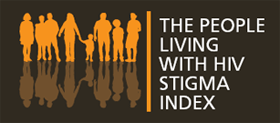Stigma and Discrimination
Although there is evidence of progress, all 39 countries still have laws that impede HIV response.
- 38criminalize some aspects of sex work
- 17criminalize same-sex relations
- 24Law does not allow for possession of a certain limited amount of drugs for personal use
- 19criminalizing the transmission of, non-disclosure of or exposure to HIV transmission
- 15restricting the entry, stay and residence of people living with HIV
Click here for summaries and published reports
All reviews and consultation reports available on AIDS Data Hub
Country Data
Afghanistan
This section is under maintenance.
Bangladesh
This section is under maintenance.
Cambodia
This section is under maintenance.
China
This section is under maintenance.
Fiji
This section is under maintenance.
India
This section is under maintenance.
Indonesia
This section is under maintenance.
Lao PDR
This section is under maintenance.
Malaysia
This section is under maintenance.
Mongolia
This section is under maintenance.
Myanmar
This section is under maintenance.
Nepal
This section is under maintenance.
Pakistan
This section is under maintenance.
Papua New Guinea
This section is under maintenance.
Philippines
This section is under maintenance.
Sri Lanka
This section is under maintenance.
Thailand
This section is under maintenance.
Viet Nam
This section is under maintenance.
PLHIV Stigma Index

Progress to Zero Descrimination
Discrimination

 On 27 May 2016, Australia joined the group of countries that have eliminated laws specifically criminalizing HIV transmission, exposure and non-disclosure by repealing the last piece of State based legislation (s 19A of the Crimes Act (Vic)).
On 27 May 2016, Australia joined the group of countries that have eliminated laws specifically criminalizing HIV transmission, exposure and non-disclosure by repealing the last piece of State based legislation (s 19A of the Crimes Act (Vic)).
Discrimination

 In August 2014, Cambodian regulation (Prakas 194) setting out legal protections for labour rights of entertainment workers (including sex workers), such as protection against discrimination, violence and abuse, and access to health information, education and services was endorsed.
In August 2014, Cambodian regulation (Prakas 194) setting out legal protections for labour rights of entertainment workers (including sex workers), such as protection against discrimination, violence and abuse, and access to health information, education and services was endorsed.
Discrimination

 Same sex marriage was confirmed legal in Guam in June 2014, and in August 2015 the Employment Non-Discrimination Act was passed, extending workplace protections based on sexual orientation and gender identity and expression.
Same sex marriage was confirmed legal in Guam in June 2014, and in August 2015 the Employment Non-Discrimination Act was passed, extending workplace protections based on sexual orientation and gender identity and expression.
Discrimination

![]() Myanmar amended the Burma Excise Act (1917) in December 2015 to remove penalties and fines for possessing hypodermic needles. This removes a key barrier to access to harm reduction for people who use drugs.
Myanmar amended the Burma Excise Act (1917) in December 2015 to remove penalties and fines for possessing hypodermic needles. This removes a key barrier to access to harm reduction for people who use drugs.
Discrimination

 On 20 September 2015, Nepal took a historic step by adopting a new constitution, which protects lesbians, gays, bisexual, transgender and intersex (LGBTI) people from discrimination, violence, and abuse.
On 20 September 2015, Nepal took a historic step by adopting a new constitution, which protects lesbians, gays, bisexual, transgender and intersex (LGBTI) people from discrimination, violence, and abuse.
Discrimination

![]() In September 2014, Quezon City, Philippines passed an Ordinance prohibiting violence and discrimination on grounds of sexual orientation and gender identity.
In September 2014, Quezon City, Philippines passed an Ordinance prohibiting violence and discrimination on grounds of sexual orientation and gender identity.
Discrimination

 In January 2015, Chinese Taipei removed HIV-related restrictions for entry, stay and residence.
In January 2015, Chinese Taipei removed HIV-related restrictions for entry, stay and residence.
Discrimination

 As of September 2015, Thailand's Gender Equality Act explicitly prohibits discrimination on the basis of gender and is inclusive of lesbians, gay, bisexual and transgender people (LGBT).
As of September 2015, Thailand's Gender Equality Act explicitly prohibits discrimination on the basis of gender and is inclusive of lesbians, gay, bisexual and transgender people (LGBT).
Discrimination

 Viet Nam will end the death penalty for seven crimes including possession and appropriation of drugs when the revised Penal Code takes effect on 1 July 2016.
Viet Nam will end the death penalty for seven crimes including possession and appropriation of drugs when the revised Penal Code takes effect on 1 July 2016.
Discrimination

 Viet Nam completed the second round of the People Living with HIV Stigma Index in November 2014, providing evidence to inform efforts to achieve zero discrimination.
Viet Nam completed the second round of the People Living with HIV Stigma Index in November 2014, providing evidence to inform efforts to achieve zero discrimination.

















